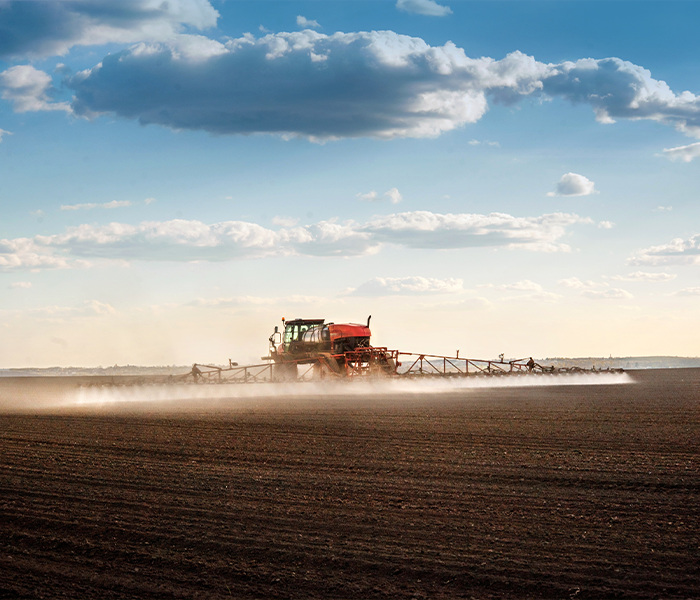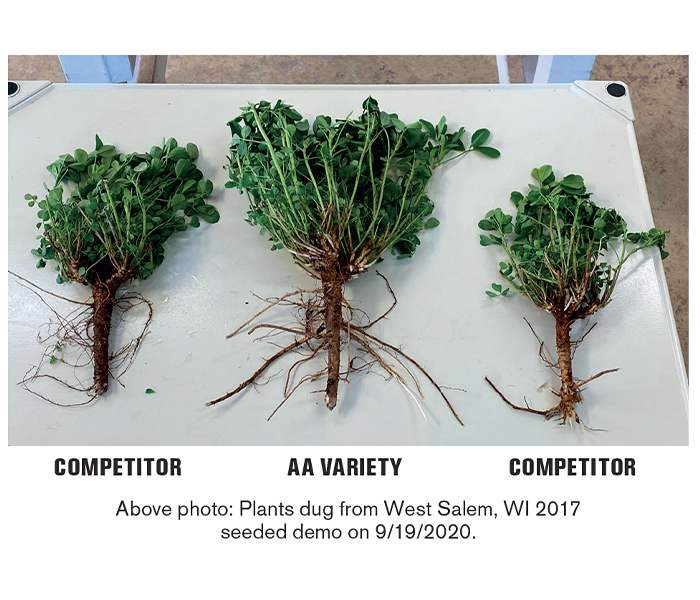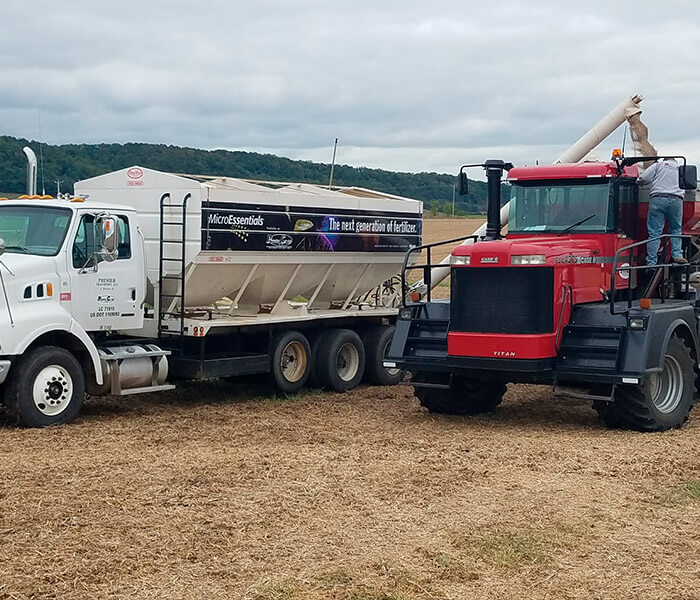Croplan Alfalfa
A strong start to your alfalfa stand is important. The soil environment that alfalfa is seeded into can mean success or failure for the stand. Management practices like seedbed preparation and soil fertility can influence stand establishment. Soil borne diseases in the upper Midwest and Eastern U.S. like Aphanomyces root rot and Anthracnose can also have a serious impact on your stand establishment and alfalfa productivity.
The enhanced multi-pathogen disease resistance package built into the newly launched varieties of CROPLAN alfalfa, designated with the “AA” in their variety name, ensures protection from an entire complex of aggressive diseases. New AA products have high resistance to multiple races of Aphanomyces root rot and Anthracnose plant disease.
Symptoms of poor disease resistance to Aphanomyces include stunted or slow to establish growth, thin stands, even potential death of the alfalfa seedlings. As the plants reach production age, disease resistance is important to keep roots healthy. This means greater water and nutrient extraction and healthy root hairs for nitrogen fixation.
In addition to the underground disease protection, the new AA varieties resist aboveground pathogen symptoms of Anthracnose plant disease. Anthracnose is a fungus that lives in the soil and can infect the alfalfa crown and is spread by spores to the stems. It typically appears in alfalfa stands that are two or more years old. However, newly identified Race 52 can occur during the first season of growth. Key symptoms are stem lesions that may ultimately lead to crown rot and plant death, most common in warm, wet weather. Wet areas of fields often exhibit the dark “spore” stage spreading anthracnose.
With built-in disease protection for both below and above ground, the genetic yield potential is maximized. The AA varieties are higher in both yield potential and quality potential due to increased plant health, resulting in a higher ROI potential. Contact your local Premier agronomist today to get started using the newly launched CROPLAN AA alfalfa varieties.




